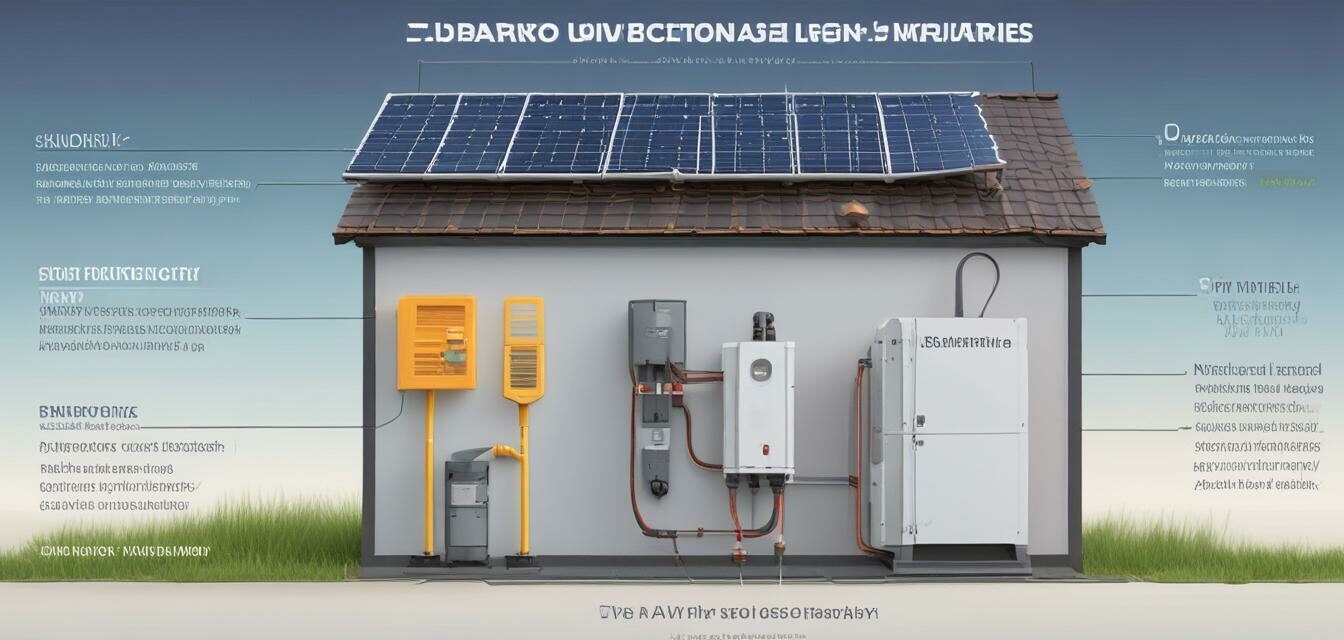
The Importance of Proper Sizing for Solar Inverters
Key Takeaways
- Properly sizing your solar inverter ensures optimal system performance.
- Over-sizing or under-sizing can lead to efficiency losses and increased costs.
- Understand your electricity needs and system components to make informed decisions.
When investing in solar power, understanding the mechanics and specifications of solar inverters is vital for ensuring your system functions efficiently and reliably. In this article, we’ll explore why proper sizing of solar inverters is crucial for maximizing performance and avoiding unnecessary expenses.
What is a Solar Inverter?
A solar inverter serves as the heart of a solar power system, converting the direct current (DC) generated by solar panels into alternating current (AC), which can be used by most home appliances. Choosing the right solar inverter not only impacts efficiency but also influences longevity and maintenance costs.
Why Sizing Matters
Sizing your solar inverter correctly is essential for several reasons:
- Performance: An adequately sized inverter will ensure your system operates at its peak performance, maximizing energy output.
- Longevity: An inverter that operates within its optimal capacity will experience less strain and, therefore, have a longer lifespan.
- Cost-Effectiveness: Proper sizing minimizes the risk of underperformance or wasted output, leading to more cost savings in the long run.
Factors to Consider When Sizing Solar Inverters
- Energy Needs: Assess your typical energy consumption patterns and daily electricity usage.
- Solar Panel Output: Determine the total wattage of your solar panel array, ensuring it aligns with the inverter capacity.
- System Type: Know whether you are installing an off-grid, hybrid, or grid-tied system as each may have different sizing needs.
Common Mistakes in Sizing Solar Inverters
Let’s look at some common mistakes to avoid when sizing your solar inverter:
- Over-sizing: While it may seem beneficial, an over-sized inverter can lead to wasted energy and higher initial costs.
- Under-sizing: An under-sized inverter won't handle peak loads efficiently, resulting in frequent shutdowns or performance issues.
- Ignoring Local Regulations: Some areas have regulations regarding inverter sizing based on installation type, which should be factored into decisions.
Comparison of Popular Solar Inverters
| Product Name | Power (W) | Input Voltage | Typical Use | Link |
|---|---|---|---|---|
| SUNGOLDPOWER 10000W DC 48V UL1741 Solar Inverter | 10000W | 48V | Home | Learn More |
| AIMS Power 6000 Watt Pure Sine Inverter Charger | 6000W | 48V | Home, Office, Cabin | Learn More |
How to Size Your Solar Inverter
Follow these steps to appropriately size your solar inverter:
- Calculate your daily power needs by reviewing your energy bills.
- Evaluate your solar panel output to gauge how much energy will be generated.
- Consider potential energy losses due to wiring or inverter efficiency.
- Choose an inverter that can handle the maximum expected power demand.
Conclusion
Properly sizing your solar inverter is essential for achieving an efficient solar energy system. By understanding your energy needs, evaluating the output of your solar panels, and avoiding common sizing errors, you can ensure that your solar power system maximizes its potential. For more detailed knowledge and products, check out our various resources including Introduction to Solar Off-Grid Systems and Solar Battery Storage Solutions.
Pros
- Maximized efficiency with proper sizing.
- Longer lifespan of inverter equipment.
- Improved cost savings in energy production.
Cons
- Initial sizing requires thorough calculations.
- Mistaken assumptions can lead to financial losses.
Tips for Beginners
- Start small; it's easier to expand later than to downsize.
- Consult with a professional installer for personalized advice.
- Research local regulations that might affect inverter choice.



